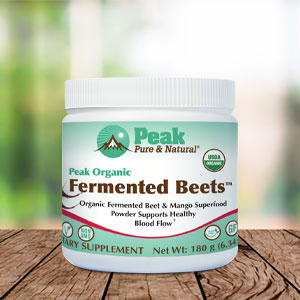Get Easy Health Digest™ in your inbox and don’t miss a thing when you subscribe today. Plus, get the free bonus report, Mother Nature’s Tips, Tricks and Remedies for Cholesterol, Blood Pressure & Blood Sugar as my way of saying welcome to the community!
Plain and simple: The right diet keeps us from dying early

There’s just no denying the power of a healthy diet to reduce disease risk.
But when we hear “healthy diet” our minds usually go straight to thinking of being deprived of some of our favorite foods.
The good news though is that there are many variations of healthy diets. While most will have similarities at the core, variations are the spice of life. And that may be the ticket to finding the right one for you.
That may even be the most important factor. Because the latest research shows the payout is even bigger — if you stick with it…
Avoid disease and live longer
We’ve written before about a Harvard T.H. Chan School of Public Health study that shows adhering to at least one of four healthy eating patterns can lower the long-term risk of cardiovascular disease.
Now, a new study led by Harvard T.H. Chan researchers indicates these eating patterns can also reduce your risk of premature death.
Both studies reviewed health data collected from the Nurses’ Health Study and Health Professionals Follow-up Study. This most recent study used data collected over 36 years from 75,230 women and 44,085 men. All participants were free of cardiovascular disease or cancer at the start of the study and completed dietary questionnaires every four years over the study period.
The information was scored based on each of four dietary pattern indexes. The higher the score, the closer the participant stuck to the dietary pattern. The four patterns they used were:
- Healthy Eating Index-2015 (HEI-2015)
- Alternate Mediterranean Diet Score (AMED)
- Healthful Plant-Based Diet Index (HPDI)
- and Alternate Healthy Eating Index (AHEI)
All four of these indexes share key components like whole grains, fruits, vegetables, nuts and legumes, though some components differ across the different eating patterns. For instance, HPDI strongly recommends against consuming any animal protein, while AMED includes fish on the list of recommended foods. You can get a more complete rundown of each diet here.
Those who scored at the highest levels of dietary adherence (meaning they stuck it out) — regardless of which healthy diet they followed — had a 14 to 20 percent lower risk of total mortality compared with those whose adherence scores were at the low end.
They also had a 6 to 13 percent lower risk of death from cardiovascular disease, a 6 to 15 percent lower risk of death from heart disease and a 7 to 18 percent lower risk of cancer-related death.
The researchers also found those who stuck it out had a 35 to 46 percent reduced risk of death related to respiratory disease — something not realized in previous studies.
In addition, those with the highest scores on the AMED and AHEI diets had a modestly lower risk of death due to neurodegenerative disease.
The stroke conundrum
Oddly enough, none of the four dietary patterns appeared to be protective against stroke-related deaths. But that doesn’t mean our hands are tied…
Even though overall diet did not make an impact on stroke risk in this study, there’s at least one dietary step I’d put my money on: cutting back on sugar.
One study showed if we were to cut out 40 percent of the sugar from sodas and 20 percent of added sugars from other foods, we could in our lifetime prevent 2.48 million cardiovascular disease events, including strokes, heart attacks and cardiac arrests.
And a healthy diet addition that has been linked with a lower risk of cardiovascular disease, ischemic heart disease and stroke is black tea. Just make sure to keep it unsweetened.
Also, remember to go easy on the salt. Eating too much salt can starve your brain of oxygen — creating conditions in the brain that are similar to those created by stroke.
Other natural ways to help reduce stroke risk include adding 15 minutes of yoga to your current aerobic exercise routine and making sure you get the American Heart Association-recommended 7 to 9 hours of sleep a night.
Editor’s note: Did you know that when you take your body from acid to alkaline you can boost your energy, lose weight, soothe digestion, avoid illness and achieve wellness? Click here to discover The Alkaline Secret to Ultimate Vitality and revive your life today!
Sources:
Variety of healthy eating patterns linked with lower risk of premature death — Harvard T.H. Chan School of Public Health
Healthy Eating Linked to Lower Risk of Total Mortality — MedPage Today
Healthy Eating Patterns and Risk of Total and Cause-Specific Mortality — JAMA Internal Medicine














